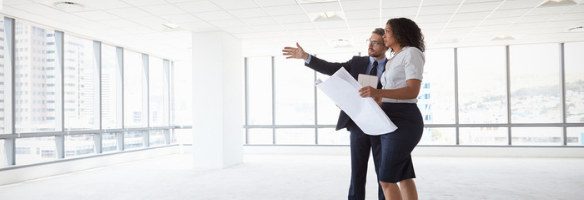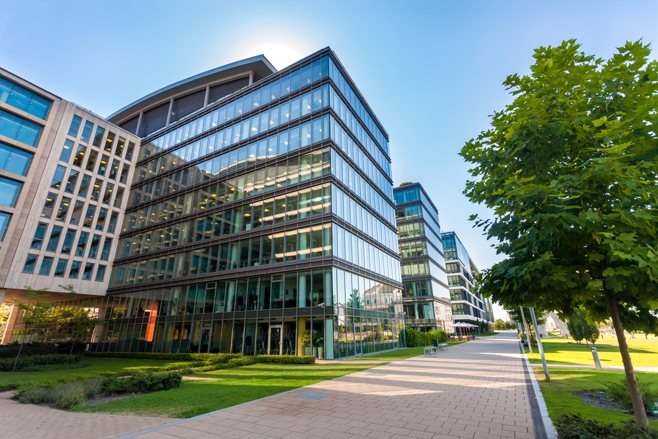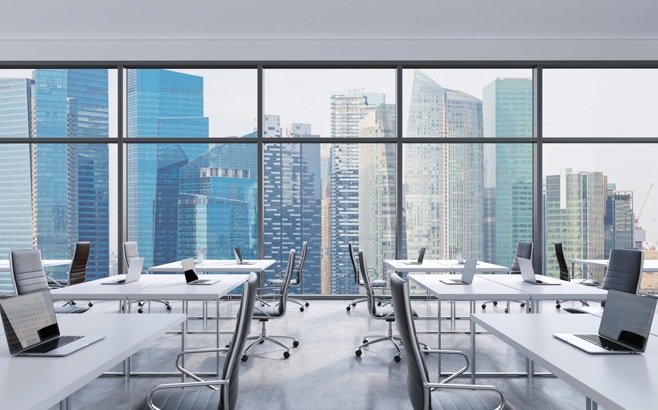10 Tips To Consider When Buying Commercial Property For Your Business
Feb 21 2018
Darren Best

While some businesses searching for commercial premises choose to lease, for many buying can sometimes be the better option by offering more freedom and flexibility – which is key for a growing business and investment. Purchasing commercial property is a sensible option for small and medium sized businesses looking to expand. However, it’s not easy. Purchasing a good commercial property can require a significant investment, in both time and money.
There are a number of questions to ask when buying a commercial property, such as where you want your business to be located, and how much money you can bring to the table. Therefore, it is essential to do your research. Read on to find out our advice on buying commercial property.
Top 10 things to consider when buying commercial property:
- Conduct thorough research
- Location, location, location
- Consider transport options
- Be as flexible as possible
- Don't forget to budget
- Take into account your deposit
- Get the property surveyed
- Take advantage of low interest rates
- Think with your head, not your heart
- 1Sub-letting the property
1. Conduct thorough research
Researching is vital. Look into long-term predictions for the location you are viewing property in – is there anything that may help or hinder property values in the future? A decline in value of your commercial property could decrease your business capital; time spent on researching the perfect location for your new business base is never time wasted.
2. Location, location, location
Location is very important when purchasing commercial property – just as important as when buying your own home. Think logically about what you will be using the premises for, and ask yourself key questions, such as:
- How many staff will it need to house?
- Will clients be coming for meetings frequently?
- Is the location easily accessible?
- Are you happy to bring your clientele to your office?
For the most part, a central location is desirable due to easy transport links. However, if you are spending most of your time dealing with clients remotely, a location set outside of town may be a better, and far more cost-effective, option.
 Photo credit: Pixachi / Shutterstock
Photo credit: Pixachi / Shutterstock
3. Consider transport options
Something that many business owners easily forget about is transport options, parking. If the location of the property is near to public transport options (such as a train station or a bus stop), there are plenty of ways to travel into the office. If you are based in an out-of-town location, this may be problematic depending on your business type. If you choose to move into a more remote location, a car park is a valuable asset – not only for staff, but for clients too.
4. Be as flexible as possible
When viewing commercial property, it is important to look for premises that is flexible. It is inevitable that your business will expand and change whilst you are occupying the property, so it is crucial to find premises that can be modified over the years to suit your business. However, this may be restricted depending on the type of commercial property. Before leasing or purchasing commercial property, read through the property deeds to find out whether there are any restrictions to changes in the property. In some instances, you may be unable to change the use class, and in other cases, it may only be temporary.
5. Don't forget to budget
It is a fact that buying commercial property for your business is rarely cheap. When budgeting, you must factor in any new furniture your new premises will need, as well as long-term upkeep and ongoing costs which will inevitably incur. Having some extra money in the bank can help to avoid any problems you may encounter along the way.
6. Take into account your deposit
Some businesses find it easy to forget that you will need to place down a large deposit, just like you would with a residential property. Think about how much money you have available, and whether you would be able to put down a substantial deposit. Bear in mind that mortgage lenders tend to ask for a deposit of 20% of the value of the property (or sometimes more), and may even ask to see a business plan.
 Photo credit: ImageFlow / Shutterstock
Photo credit: ImageFlow / Shutterstock
7. Get the property surveyed
It is vital that you have a full professional survey carried out on the commercial premises before making a purchase. A basic survey will not do, especially when you are spending a considerable amount of money investing in the building. Whether it is commercial premises, or a private home, a survey is always a wise precaution to check for any problems before they arise.
8. Take advantage of low interest rates
When considering purchasing a commercial property, it is wise to keep a close eye on interest rates as they are constantly fluctuating. Although they won’t stay constant for a long period of time, it makes a mortgage an attractive option. Re-mortgaging your property will help to increase additional capital, which will be considerably cheaper than a business loan. If you do eventually decide to invest in a property, you can deduct the tax from interest payments on commercial mortgages, which is highly beneficial.
9. Think with your head, not your heart
It is vital to be rational – don’t just jump head-first into buying a commercial property without doing your research and considering other options. In the short-term, buying a commercial property with a mortgage will undoubtedly exceed the cost of renting the same property. If your business is fairly well-established, with potential to grow, it is worth investing. However, if you are looking to set up a start-up, this is something to think about – it may be wise to rent in the short-term, then consider investing in a commercial property later on.
10. Sub-letting the premises
If the commercial property you are looking at purchasing is too big for your business at present, but you wish to grow, it may be worth looking into sub-letting. This can help to manage any cash-flow challenges and maintaining flexibility in your premises. However, this isn’t available for all commercial properties, thus you will need to check with your mortgage lender first and read your lease carefully for any clauses that may prevent sub-letting.
If you need any help with buying commercial property, please do not hesitate to get in touch with our the team at Savoy Stewart for any advice and assistance in your property search.
Feature image credit: Monkey Business Images / Shutterstock